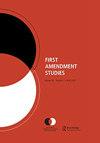“Civility” as a Threat to Academic Freedom
Q2 Social Sciences
引用次数: 21
Abstract
Critical intellectuals are unfortunately accustomed to intentional, institutional censorship and precarious academic labor as threats to the freedom to research, teach, and speak their minds. However, alongside these material forces of exclusion and silencing, we must consider ideological conditions as threats to academic freedom. As a case in point, “civility” is what rhetorical scholar Michael McGee describes as an “ideograph”: a shorthand word or phrase that captures and organizes community around prevailing ideological commitments. “Civility”—the basis of universal, rule-governed cooperation—is a widely takenfor-granted good in capitalist society. However, the call for civility masks the presence of contending interests and inequality. Those who call attention to antagonism definitionally violate the rules of civility and are subject to legitimated sanction. The ideology of civility is thus a significant threat to academic freedom. In what follows, I support this argument first with a historical and etymological discussion of the term “civility.” Then I will discuss the increasing deployment of this term to discipline critical intellectuals, particularly Steven Salaita. I conclude with a discussion of resistance to this ideological frame and the oppressive actions that it justifies.“文明”对学术自由的威胁
不幸的是,批判的知识分子习惯于有意的、制度性的审查制度和不稳定的学术劳动,这是对研究、教学和表达思想自由的威胁。然而,除了这些排斥和压制的物质力量外,我们必须考虑到意识形态状况对学术自由的威胁。作为一个恰当的例子,“文明”是修辞学家迈克尔·麦基所描述的“意指文字”:一个速记词或短语,它捕捉并组织了围绕主流意识形态承诺的社区。“文明”——普遍的、有规则的合作的基础——在资本主义社会被广泛接受,被认为是理所当然的好事。然而,对文明的呼吁掩盖了利益冲突和不平等的存在。那些引起注意对抗的人明确违反了文明规则,并受到合法的制裁。因此,文明的意识形态是对学术自由的重大威胁。在接下来的文章中,我首先通过对“文明”一词的历史和词源讨论来支持这一论点。然后我会讨论越来越多地使用这个术语来约束批判知识分子,尤其是Steven Salaita。最后,我将讨论对这种意识形态框架的抵制,以及它所证明的压迫行为。
本文章由计算机程序翻译,如有差异,请以英文原文为准。
求助全文
约1分钟内获得全文
求助全文
来源期刊

First Amendment Studies
Social Sciences-Law
自引率
0.00%
发文量
0
期刊介绍:
First Amendment Studies publishes original scholarship on all aspects of free speech and embraces the full range of critical, historical, empirical, and descriptive methodologies. First Amendment Studies welcomes scholarship addressing areas including but not limited to: • doctrinal analysis of international and national free speech law and legislation • rhetorical analysis of cases and judicial rhetoric • theoretical and cultural issues related to free speech • the role of free speech in a wide variety of contexts (e.g., organizations, popular culture, traditional and new media).
 求助内容:
求助内容: 应助结果提醒方式:
应助结果提醒方式:


